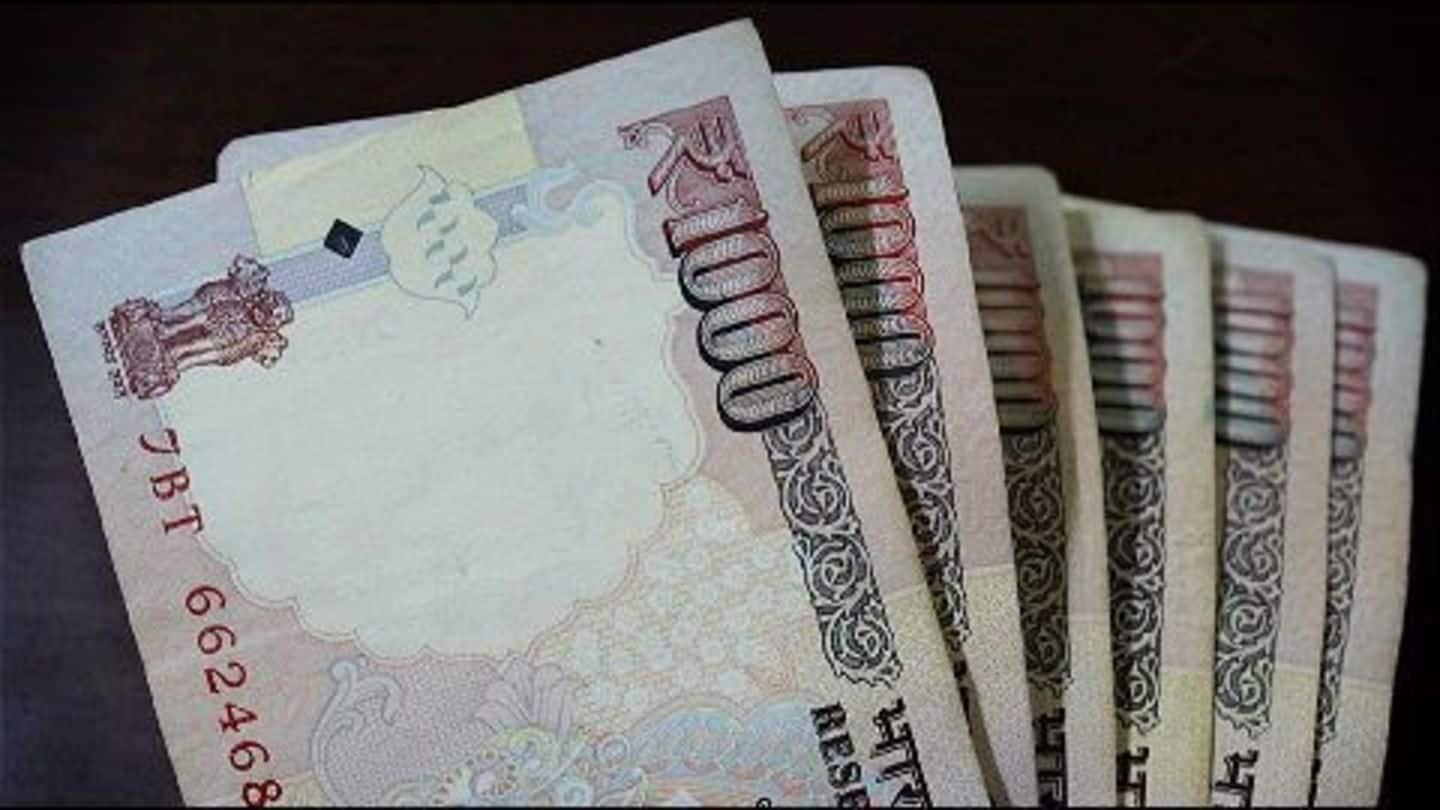
Rs.1039 crore cash collected during Lok Sabha polls
What's the story
Association for Democratic Reforms (ADR) released a report that analyzed the funds collected by various political parties during state assembly and Lok Sabha elections during 2004-15.
Cash collections solely accounted for about 63% of a total of Rs.2,107 crore in funds collected for state assembly elections.
For Lok Sabha elections, Rs.1039 crore in cash or 44% of a total of Rs.2355 crore was received.
ADR
What is the Association for Democratic Reforms?
The Association for Democratic Reforms is a non-governmental organization that works for electoral and political reforms.
A group of 13 professors including Trilochan Sastry (IIM-A & B), Jagdeep Chhokar (IIM-A) and Ajit Ranade founded ADR in 1999.
In collaboration with National Election Watch (NEW), ADR aims to bring transparency and accountability by reducing the influence of muscle and money in Indian elections and politics.
1999
Disclosure of contesting candidates' background
Association for Democratic Reforms came into existence after group professors filed a PIL with the Delhi High Court.
It was filed for disclosure of educational, financial and criminal background of those who were contesting in elections.
In 2000, the PIL was upheld by the Delhi HC after which the Indian government had appealed to the Supreme Court to reverse the Delhi HC's ruling.
Personal
Supreme Court rules against government's appeal
In 2002 and 2003, ruling against the Indian government's appeal, the Supreme Court had made it mandatory for the contesting candidates to disclose their educational, financial, and criminal background before the elections by an affidavit with the Election Commission.
2004-15
Least transparent when it comes to funding parties
ADR presented its analysis of the funds collected and spent by political parties during the state and Lok Sabha elections (between announcement and completion of polls) during 2004-2015.
The report is based on the statements submitted by regional and national parties to the Election Commission.
Trilochan Sastry, Founder-ADR, said that when it comes to funding political parties, India is the least transparent country.
Cheque Payments
Cheque payments made during the polls
ADR's data shows that 37% of the total funds (Rs.2107 crore) or Rs.1244 crore were collected through cheque payments during the 71 state legislative elections conducted from 2004-15.
For the three Lok Sabha elections held in that period, cheque payments accounted for over Rs.1300 crore or 55% of the total funds (Rs.2355 crore).
Ten state polls were conducted in 2008, the maximum between 2004-15.
Lok Sabha
Collection by 5 parties during Lok Sabha polls
During the last three Lok Sabha polls held in 2004, 2009 and 2014, five regional parties collected 62% of the total funds.
Only SP, AAP, AIADMK, BJD and SAD collectively gathered Rs.267.14 crores during the Lok Sabha polls.
According to ADR, Samajwadi Party topped the list as it alone had collected over Rs.118 crore and spent Rs.90 crore during the Lok Sabha elections.
Quote
AAP settles for second place
About the collection during the three Lok Sabha polls, ADR stated, "Despite contesting only in 2014 Lok Sabha elections, AAP came second in terms of collection by declaring Rs 51.83 crore. AIADMK is placed third with Rs 37.66 crore."
Samajwadi Party
SP tops list of maximum funds collected
The current ruling party in Uttar Pradesh, Samajwadi Party beat other political parties in terms of maximum funds collected and spent during state assembly polls.
Samajwadi Party had reportedly collected Rs.186.8 crore while its expenditure was only Rs.96.54 crore.
The current ruling party in Delhi, Aam Aadmi Party, came second as it had garnered Rs.38.54 crore total funds and spent only Rs.22.66 crore.
Quote
No political party's expenditure should be above Rs.20k
According to the EC guidelines, political parties should not spend above Rs.20,000 in cash but, "there is no provision in the expenditure format for the parties to declare expenses below or above Rs.20,000," ADR noted in its report.